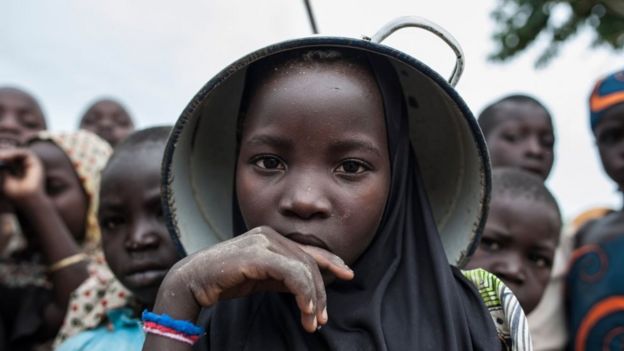

WHEN mechanics Taye and Kehinde Hamza agreed to service a vehicle at their workshop in Nigeria’s Bauchi State in 2010, they could never have imagined the years of hell which would follow.
The car, it turned out, belonged to a Boko Haram fighter, and the job was enough to get the twins arrested.
It would be another eight years until they were free again, cleared along with 473 others of terrorism charges.
Theirs is one tale among many emerging from a mass trial currently under way.
Four judges have been hearing cases since last Monday in the town of Kainji, in the central Niger State. So far, those released for lack of evidence far outweigh those convicted of being members of Islamist militant group Boko Haram.
Among those cleared of all charges last week were children and the elderly. Some, like the Hamza twins, had been detained since 2010.
Mariam Mohammed, a Shua Arab from Borno State, was caught by soldiers as she tried to flee the Sambisa Forest – Boko Haram’s base – back in 2014.
 This girl is one of millions displaced by the violence
This girl is one of millions displaced by the violence
She had been lured into the forest and married off to a fighter at the age of 11, an official statement from the Nigerian Justice Ministry said.
Last week, she turned up in court cradling a three-month-old baby.
The long term impact of their imprisonment is not yet known. According to the Justice Ministry, some are suffering from mental illnesses – although whether the conditions existed before their arrests was unclear.
At a previous mass trial, held in October, more than 400 suspects were released, with just 45 jailed for their roles in the Boko Haram insurgency which has killed more than 20,000 people and displaced millions of others.
Justice Minister Abubakar Malami told the BBC that the released suspects would be rehabilitated before being allowed to return to their families.
But while these judges are making headway into the backlog of people awaiting trial, there are still another 5,000 people are still waiting for their own dates to be set.
The judges have found 205 people guilty of terror-related offences – including the “mastermind” behind the abduction of the Chibok girls.
Judges had originally found Haruna Yahaya, 35, guilty of taking part in the 2014 kidnapping – despite his arguments he was an unwilling participant. On Friday, they handed him an additional sentence for planning the mass kidnapping.
In total, he was sentenced to 30 years in prison.
But while convictions like this offer the hope of justice for Boko Haram’s many victims, campaign group Amnesty International has questioned the method of the trial.
“Mass trials of this nature provide insufficient guarantees for fair trial and risk failing to realize justice,” Amnesty’s Nigeria’s director, Osai Ojigho, said.
“This is particularly so in this case, given that Amnesty International has previously documented how the security forces routinely rounded up and detained hundreds of young men as ‘Boko Haram suspects’ with no evidence.”
The Nigerian authorities always insist that the suspects are being given fair hearing at the trials with lawyers provided to defend them through the Nigeria Legal Aid Council, according to the Justice Ministry. – bbc.co.uk